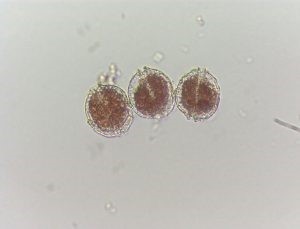IFOP, participa en conferencia internacional sobre acuicultura, pesquerías y biología marina (ICAF 2023) en Londres
agosto 17th, 2023El comité científico organizador del evento, está integrado por un científico de: Francia, EEUU, Malasia y Argentina.
Entre el 14-15 de agosto se realizará en Londres, Reino Unido, la primera conferencia internacional sobre acuicultura, pesquerías y biología marina (ICAF 2023), oportunidad en la que ha sido aceptada una contribución del CREAN (Centro de Estudios de Algas Nocivas) (abajo adjunto resumen traducido al español) del IFOP. Esta contribución ha sido elaborada por seis investigadores del CREAN, Oscar Espinoza, Pablo Salgado, Pamela Carbonell, Gemita Pizarro, Javier Paredes, y Leonardo Guzmán.
La presentación es el día lunes entre 14.20 – 14.40 (hora de Londres) que corresponde entre las 09.20 – 09.40 hora de Chile. Esta conferencia se realiza a través de la plataforma zoom, y muestra cómo es factible generar intercambios de experiencias usando estas tecnologías. La presentación se envía grabada, y el presentador (en este caso Dr. Guzmán) debe estar presente telemáticamente para responder a consultas.
En la oportunidad, se ha preparado una presentación de 15 minutos (5 minutos para preguntas), que muestra los progresos que se han logrado en los últimos 10 años, con la incorporación de investigadores con capacitación de alto nivel, nuevas tecnologías y herramientas para lograr una mejor comprensión de las distintas floraciones nocivas que afectan a nuestro país, particularmente los fiordos nacionales.
Links conferencia
https://aqua-conference.com/
Resumen
MONITOREO DE FLORACIONES DE ALGAS NOCIVAS A LO LARGO DEL TIEMPO EN EL CENTRO-SUR DE CHILE: IMPLEMENTACIÓN DE NUEVOS CONOCIMIENTOS, TECNOLOGÍAS Y GESTIÓN.
Guzmán, Leonardo1, Oscar Espinoza-González1, Pablo Salgado2, Pamela Carbonell1, Gemita Pizarro2 & Javier Paredes-Mella1
Centro de Estudios de Algas Nocivas (CREAN) – Instituto de Fomento Pesquero (IFOP)
Padre Harter 574, Puerto Montt, Chile (1)
Enrique Abello 0552, Punta Arenas, Chile (2)
A nivel mundial la producción de proteínas marinas ha adquirido mayor relevancia para la seguridad alimentaria y la nutrición. Chile es líder mundial en pesca y acuicultura, ocupando el séptimo lugar por sus niveles de producción, con retornos de exportación durante 2021 de US$ 7.038 millones.
La pesca y la acuicultura presentan desafíos vinculados a la planificación sostenible y la adaptación al cambio climático. Ambos también enfrentan desafíos como cambios en el medio ambiente por la contaminación, pérdidas de hábitat, El Niño y La Niña, y Floraciones de Algas Nocivas (FAN). Los eventos FAN se han observado cada vez más en los últimos 50 años, lo que constituye un desafío dadas las capacidades limitadas para predecirlos y controlarlos, para eliminar las toxinas de los mariscos y la falta de antídotos para contrarrestar los efectos de las toxinas. Todo esto requiere fortalecer las medidas de prevención, entre las cuales los programas de monitoreo (PM) son una herramienta clave para mitigar sus efectos.
Un PM es una actividad sistemática en el espacio-tiempo, que proporciona información sobre las tendencias naturales de ciertas variables que se utilizan como indicadores de cambio ambiental y, eventualmente, indicadores de riesgo, que se pueden utilizar para proteger la salud pública y minimizar los problemas sociales, económicos y ambientales. impactos Para un PM, existen herramientas que van desde imágenes satelitales hasta técnicas de biología molecular, pero todas tienen como objetivo detectar, identificar y cuantificar las microalgas responsables de las FAN y, por supuesto, en el caso de las microalgas tóxicas, detectar y cuantificar las toxinas.
Este aporte muestra los programas que ejecuta el Instituto de Fomento Pesquero (IFOP) y apoya técnicamente la Subsecretaría de Pesca y Acuicultura, que monitorea una parte importante del litoral nacional, incluyendo los fiordos y canales del sur (36°‒55°S), combinando técnicas tradicionales y emergentes, que permiten disponer de series temporales a largo plazo, mejorar las alertas tempranas, estimar las áreas de floración, e incluso predecir determinadas floraciones, y consecuentemente mejorar la protección de la salud pública y minimizar los efectos sobre las actividades productivas.
En la prensa:
